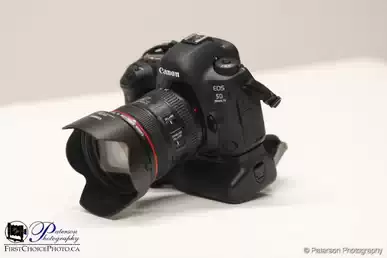What Photography Equipment & Gear Should You Buy to Take Better Pictures?
One of the most common questions I hear is:
“I want to get more serious about photography—what equipment should I buy to get better pictures?”
It’s a great question, but not one with a simple answer. The gear you’ll need depends a lot on the type of photography you want to do. In this post, I’ll focus on nature and wildlife photography, since that’s where many people start and where gear really makes a difference.
Photography Equipment – Camera Bodies
If you’re ready to get serious, I recommend starting with either a DSLR or a mirrorless camera. The main advantage is flexibility, you can change lenses and add accessories while keeping the same camera body.
Yes, you can absolutely use other types of cameras, and some excellent photographers do. But the ability to switch glass and expand your kit is something that will grow with you.
When buying new, look for a camera with at least 20 megapixels. If your current camera has fewer, don’t worry—it’s still fine to start with. But if you’re investing in new gear, aim for more resolution.

Photography Equipment – Lenses
Your lens choice often matters more than your camera body.
- Starting out: If you bought a camera kit, start with the kit lens. Learn its strengths and weaknesses before upgrading.
- For landscapes: A wide-angle lens is incredibly useful for capturing big skies and sweeping scenery.
- For wildlife: The longer the better. Lenses in the 200mm, 300mm, 400mm, or even 600mm range bring distant subjects much closer.
You don’t need a $14,000 lens to get started. That said, investing in better quality glass will absolutely improve your images. Personally, I shoot a Sigma 150–600mm, and I absolutely love it, it’s worth every penny for wildlife work.
Flash
For wildlife and nature photography, I recommend skipping flash purchases, at least for now. Your money is better spent on lenses, support systems, or accessories that make more of a difference in the field.

Tripods & Monopods
I don’t always use a tripod, but there are times when it’s essential—especially for:
- Long night exposures
- Shooting with big lenses in low light
- Panning smoothly
Cheap tripods can work in bright light, but for serious use, a solid tripod is a must.
If you prefer to hike light, a monopod is a fantastic alternative. It offers extra support without the bulk, perfect for stabilizing heavy lenses in the field.
Camera Bags
A good carrying bag or backpack is worth every cent. If you’ve ever hiked while juggling loose gear, you know what I mean, it’s a nightmare. A proper bag keeps your equipment safe, organized, and easy to transport.
Batteries
Always carry extra batteries. Nothing kills the excitement of a shoot faster than running out of power halfway through.
Pro tip: if you’re heading out for multiple days, bring an in-vehicle charger so you can recharge on the go.
Memory Cards & Accessories
Extra memory cards are another must-have. You’ll always think you have enough space, until your card fills up at the worst possible moment.
Other accessories like filters, remotes, or specialty gear can be helpful. My rule of thumb is simple:
- If I’ve needed an item more than once or twice, it goes on my “buy” list.
- If not, I skip it. No point in wasting money on gear that gathers dust.

Final Thoughts
Getting serious about photography doesn’t mean buying everything at once. Start with the basics—a solid camera body, a versatile lens, and the essentials to keep your gear safe and running. From there, expand your kit as your needs grow.
The best gear is the gear you’ll actually use.

the best Telephoto lens that i have used on an SLR is the Canon EF 70-200 F/2.8 lens. Best image quality ever.~*”